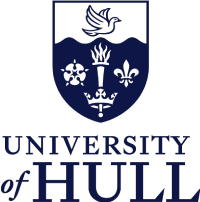Dr Chris Cawthorne
No more applications being accepted
Funded PhD Project (European/UK Students Only)
About the Project
Summary of Cluster
The PET Healthcare technologies cluster aims to expand the scope of PET research at both the University and the Hull & East Yorkshire NHS Trust with the aim of improving patient outcomes using a ‘dose-on-demand’ approach for the provision of PET service to patients. The University is unique in that it houses a benchtop cyclotron dedicated to preclinical research in a bespoke PET facility, and links to a clinical dose-on-demand cyclotron development at Castle Hill Hospital – one of the first such facilities to be built worldwide. Studentships in the cluster build on local academic and clinical expertise and focus on specific areas of PET-themed research, including i) lowering the cost of ‘dose-on-demand’ 18F-radio-pharmacy production via the application of microfluidic devices, ii) the improvement of 68Ga-PET methods to assess radiation dose from molecularly targeted radiotherapy using 177Lu, iii) the validation of translational methods to allow inhaled drug deposition to be quantified using PET, and iv) the application of machine learning tools to improve scatter correction and thus the quality of reconstructed PET images.
PhD Project 4: Machine Learning for Scatter Correction in PET (supervisors: Walker, Hawick)
In PET, scattered events are classified as those where at least one of the two photons in coincidence has undergone at least one Compton interaction, and image quantification in PET imaging cannot be achieved without appropriate correction. Scattering cannot be computed directly and is currently based on analytical or Monte Carlo simulation techniques. This project seeks to validate a technique for scatter correction based on machine learning, the main benefit being a huge reduction in processing time. Images reconstructed via machine learning and traditional methods will be generated and compared in a systematic and reproducible fashion. This can be achieved initially by replacing one or more elements of a current image reconstruction scheme with deep learning counterparts. In addition, it would be possible to perform deep learning based image post-processing. Applicants would be expected to have strong programming skills and it would be desired that they have knowledge of machine learning, high performance computing, image analysis and processing.
Applicants should have at least a 2.1 undergraduate degree in Chemistry or Biomedical engineering for Project 1, Pharmacological Sciences for Project 2, Pharmacological Sciences or Chemistry for Project 3, and Biomedical engineering/Computer Science for Project 4 together with relevant research experience. It is anticipated that the successful applicant will have a 1st class undergraduate degree or Masters level qualification.
PhD students at the University of Hull follow modules for research and transferable skills development and gain a Masters level Certificate, or Diploma, in Research Training, in addition to their research degree.
Successful applicants will be informed of the award as soon as possible and by 2nd April 2018 at the latest.
Funding Notes
Studentships will start on 17th September 2018.
Full-time UK/EU PhD Scholarships will include fees at the ‘home/EU' student rate and maintenance (£14,553 in 2017/18) for three years, depending on satisfactory progress.
Full-time International Fee PhD Studentships will include full fees at the International student rate for three years, dependent on satisfactory progress.

 Continue with Facebook
Continue with Facebook

